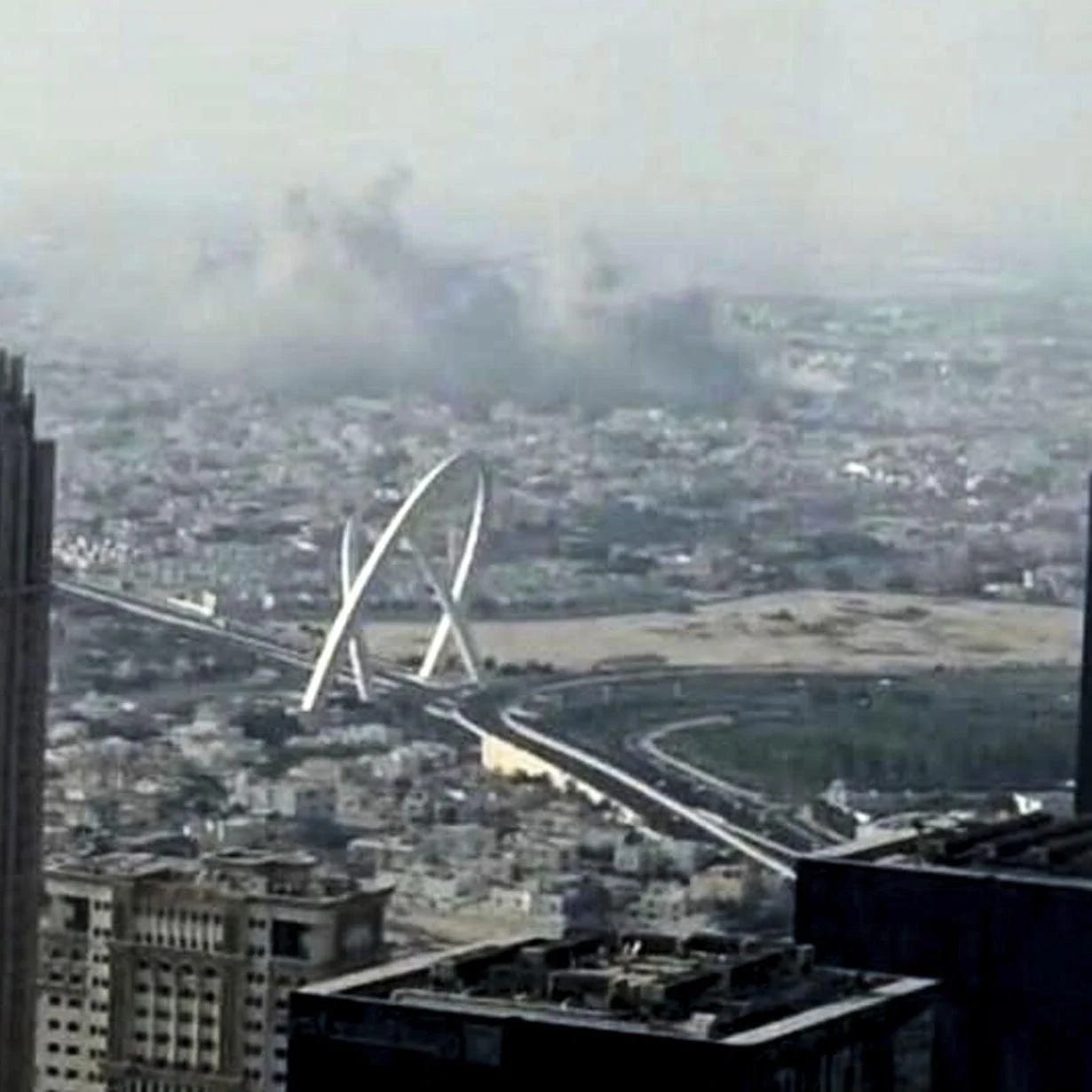Israel's Unprecedented Strike on Doha: A Violation of Sovereignty and Escalation in the Gaza Conflict
In a dramatic escalation of the ongoing Israel-Hamas war, Israeli fighter jets launched a precision airstrike on September 9, 2025, targeting senior Hamas leaders in the heart of Qatar's capital, Doha. The attack, which struck a residential complex housing Hamas's political bureau, marks the first time Israel has conducted military operations on Qatari soil.
Explosions rocked the Katara district, sending plumes of black smoke into the sky and drawing immediate international condemnation. Qatar, a key mediator in ceasefire talks between Israel and Hamas, denounced the strike as a "cowardly" assault that violated its sovereignty and international law. This incident not only threatens fragile peace negotiations but raises profound questions about the legality of extraterritorial strikes and the right to indiscriminate bombing under the guise of counterterrorism.
The strike came amid heightened tensions following a Hamas-claimed shooting in Jerusalem on September 8, which killed six Israelis at a bus stop. Israeli Prime Minister Benjamin Netanyahu's office described the operation as a "wholly independent Israeli action," authorized after consultations with security chiefs.
The Israel Defense Forces (IDF) and Shin Bet intelligence agency confirmed it was a "precise strike" using "precise munitions" to target Hamas figures "directly responsible for the brutal October 7th massacre and orchestrating the war against Israel." According to Israeli officials, the raid involved over 10 fighter jets Hamas sources confirmed the meeting was underway when the bombs fell, accusing Israel of sabotaging peace efforts.
While senior leaders like al-Hayya survived—Hamas claimed the attack "failed to assassinate the negotiating delegation"—the toll was devastating: five Hamas members killed, including al-Hayya's son and several aides, plus one Qatari Internal Security Force officer. Qatar's Interior Ministry reported injuries among its personnel and mobilized emergency teams to secure the site, where ambulances and police swarmed the streets.
Qatar's response was swift and unequivocal. Foreign Ministry spokesperson Majed Al Ansari labeled the assault a "criminal" and "blatant violation of all international laws and norms," targeting residential buildings and endangering civilians. The Gulf state, which hosts the largest U.S. military base in the Middle East at Al Udeid and has mediated multiple rounds of Gaza talks alongside Egypt, vowed not to tolerate such "reckless Israeli behavior" that disrupts regional security.
Qatar denied receiving adequate prior warning despite U.S. claims of notification, stating the alert came only as explosions echoed through Doha. The incident has suspended ceasefire discussions, with a senior Qatari official assessing whether negotiations can continue.
The international backlash was immediate and widespread, underscoring the strike's potential to unravel diplomatic progress. UN Secretary-General António Guterres condemned it as a "flagrant violation of Qatar's sovereignty," urging all parties to prioritize a permanent ceasefire over actions that "destroy it." Saudi Arabia, the UAE, Egypt, Turkey, Iran, and Pakistan joined the chorus, denouncing the attack as "brutal aggression" and a threat to regional stability. Turkish President Recep Tayyip Erdoğan called it evidence of Israel's "blind rage" and adoption of "terrorism as state policy."
Even the United States, Israel's closest ally, expressed disapproval. White House Press Secretary Karoline Leavitt stated the unilateral bombing "does not advance Israel or America's goals," though she noted eliminating Hamas is "worthy." President Donald Trump reportedly assured Qatar's emir that such an incident "will not happen again on their soil" after speaking with Netanyahu.
At the core of this crisis lies a contentious legal debate: Does Israel's claim of Hamas's presence in Doha justify bombing a sovereign nation's capital? Under international law, particularly the UN Charter's Article 2(4), states must refrain from the use of force against another's territorial integrity. While Article 51 allows self-defense against armed attacks, extraterritorial strikes require imminent threats and proportionality—standards Israel asserts were met through intelligence on Hamas's role in ongoing violence.
However, critics argue the evidence is thin: Hamas's political wing in Doha focuses on diplomacy, not military operations, and the strike occurred during truce talks, suggesting pretext rather than necessity. With little public proof beyond Israeli assertions, the action appears to initiate aggression on foreign soil, breaching Qatar's sovereignty without UN authorization or host consent.
Even if Hamas operatives were present, does this permit indiscriminate bombing? The strike's location in a residential area, guarded by Qatari forces, raises proportionality concerns under the Geneva Conventions, which prohibit attacks expected to cause excessive civilian harm relative to military gain. A Qatari security member's death and potential injuries to residents highlight the risks. Qatar's hosting of Hamas was coordinated with the U.S. to aid mediation, not harbor threats—making Israel's unilateral raid a dangerous precedent that could justify any nation striking perceived enemies abroad.
Consider a parallel: If Hamas leaders were in the United States, would Israel have the right to bomb indiscriminately? Absolutely not. Such an act would violate U.S. sovereignty, trigger international crisis, and demand accountability through legal channels, not vigilante airstrikes. The U.S. would handle it via intelligence and law enforcement, not invite foreign bombardment. Israel's strike undermines the very mediation Qatar provides, potentially collapsing hostage release efforts and prolonging the Gaza war, where over 60,000 Palestinians have died since October 2023. It signals a shift from targeted operations to broader extraterritorial aggression, eroding global norms and inviting retaliation.
As smoke clears over Doha, the world watches warily. This strike may weaken Hamas tactically but at the cost of diplomatic isolation for Israel. True security demands restraint, not escalation—ending the cycle through genuine negotiations, not bombs in allied capitals. The path to peace lies in dialogue, not destruction.


